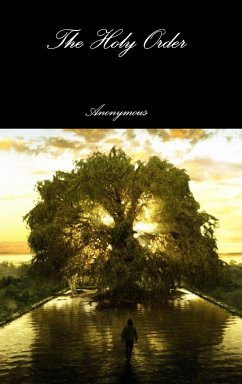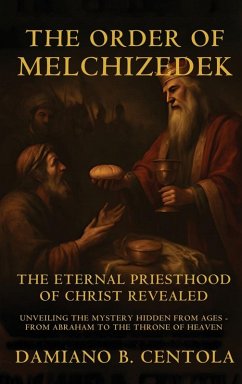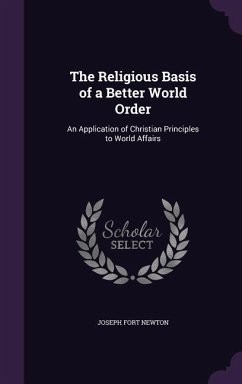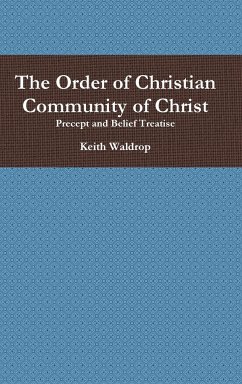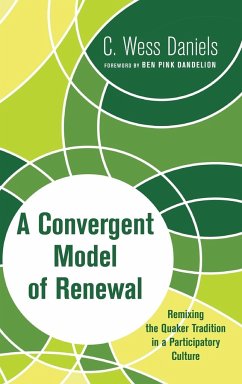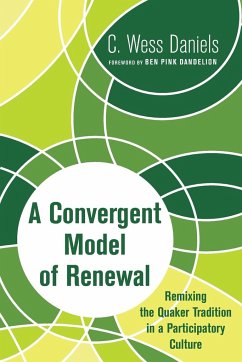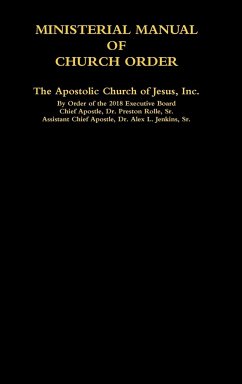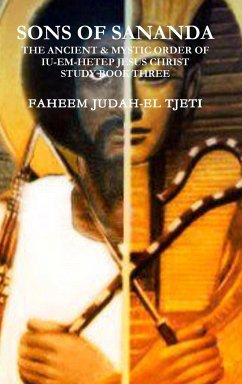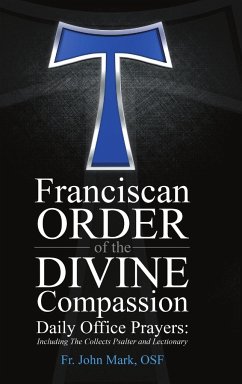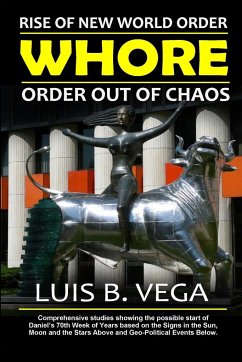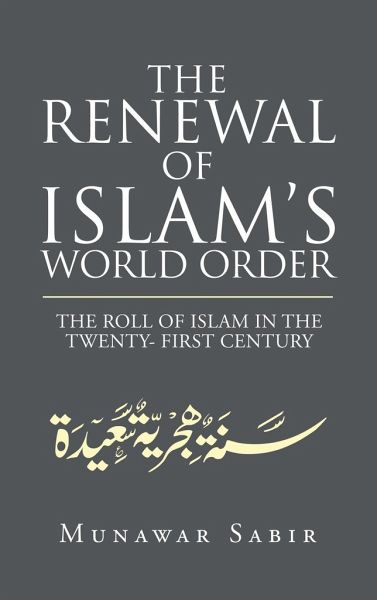
The Renewal of Islam's World Order
The Roll of Islam in the Twenty- First Century
Versandkostenfrei!
Versandfertig in 1-2 Wochen
39,99 €
inkl. MwSt.
Weitere Ausgaben:

PAYBACK Punkte
20 °P sammeln!
Allah created the earth and then bestowed on man His favor to extract sustenance from it. He also creates the sun moon and the stars to create a just equilibrium and harmony in the universe. The sun provides energy for the growth, sustenance and wellbeing of the humans' plants and the animals. Gradually man began to extract more than his personal needs from the earth and the boom of economics, trade and commerce started, creating, cycle's imbalance, disharmony, wars, poverty, and injustice throughout the globe. This disharmony caused by greed not only blemished the humans, but the animal life ...
Allah created the earth and then bestowed on man His favor to extract sustenance from it. He also creates the sun moon and the stars to create a just equilibrium and harmony in the universe. The sun provides energy for the growth, sustenance and wellbeing of the humans' plants and the animals. Gradually man began to extract more than his personal needs from the earth and the boom of economics, trade and commerce started, creating, cycle's imbalance, disharmony, wars, poverty, and injustice throughout the globe. This disharmony caused by greed not only blemished the humans, but the animal life also suffered by disappearance of species. Pollution and contamination of the environment resulted from race to accumulate and hoard the world's wealth in a few hands. Man, disobeyed Allah's universal laws and Allah's Covenant. In return for all of Allah's favors Allah commands: Justice, Al-'Adl. Justice, fairness honesty, integrity and even-handed dealings are a prerequisite of every Muslim's conduct when dealing with others whether socially or in business transaction Doing what is good and that is beautiful. Al-Ihsan. This attribute includes every positive quality such as goodness, beautiful, pleasing, harmony. Human beings have an obligation to do what is wholesome and beautiful in their relationship with Allah and His creatures. Provide for those near to you, qurba and kith and kin. Help them with wealth, kindness, compassion, humanity, and sympathy. Allah forbids Al-Fahasha, all evil deeds, lies, false testimony, fornication, selfishness, ingratitude, greed, and false belief. One must fulfill the Covenant of Allah and who so ever does beautiful and righteous deeds Allah will give him or her new life and reward them with greater wages. Allah commands justice, the doing of good and liberality to kith and kin and He forbids all shameful deeds and injustice and rebellion: He instructs you, that ye may receive admonition. Fulfill the Covenant of Allah when ye have entered into it and break not your covenants after ye have confirmed them: indeed, ye have made Allah your surety; for Allah knows all that you do. (Qur'an 16:90-91)ô Whoever works righteousness, man or woman and has Faith, verily, to him will We give a new Life, a life that is good and pure and We will bestow on such their reward according to the best their actions. (Qur'an16:97) Tawhid the main pillar off Islam signifies that human's economic life depends wholly on Allah's Laws of the universe that their relationship to those who believe is through the obedience to the Covenant of Allah. Allah maintains in the Qur'an that there is no creature on earth the responsibility of whose sustenance is not assumed by Allah. No creature crawls on earth that Allah does not nourish. He knows its essential nature and its varying forms; every detail has its place in the obvious plan. (Qur'an 11:6) How are the people in need provided for their sustenance and needs of daily lives? All wealth belongs to Allah who bestows it on some persons more than others. This wealth is given in trust, whereby the possessor is obliged to give the surplus in Allah's cause, to his kin, to the widows and orphans and to the needy first in his community and then in the other communities around him. Wealth is to be shared so that not a single individual of the Ummah, or indeed in the world should go hungry or without education and shelter.





